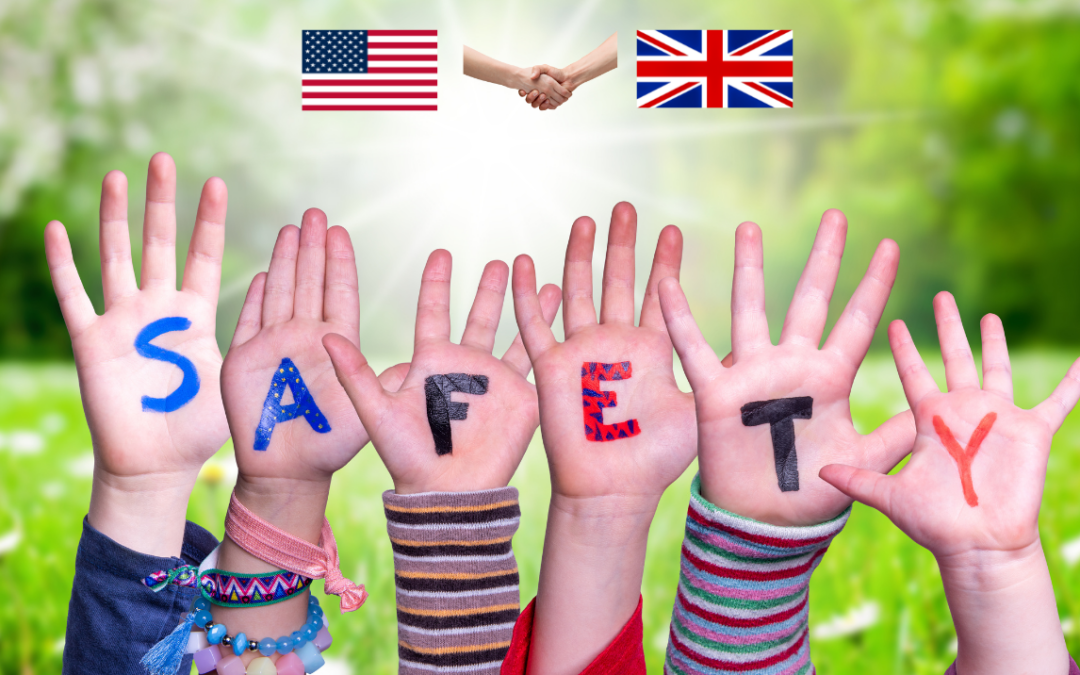Introduction
The United Kingdom and the United States have recently forged a groundbreaking agreement aimed at bolstering children’s online privacy and safety. In a joint statement, both governments announced plans to introduce new standards and policies that promote data protection for minors, addressing growing concerns about the online environment that young people navigate daily. This agreement arrives amid heightened global attention to children’s privacy and the push for robust measures to safeguard minors in the digital world.
Context: A Global Push Towards Children’s Privacy Rights
As technology advances, concerns around children’s privacy rights have intensified, particularly as younger users become increasingly active on smartphones and social media platforms. This initiative is not isolated but aligns with wider efforts in both the UK and the US to protect minors from the potentially harmful effects of unregulated digital spaces. The UK has previously implemented measures like the Age-Appropriate Design Code, which mandates that companies adhere to strict privacy and design standards for younger users, while several states in the US have enacted laws limiting minors’ interactions with social media platforms.
Key Points of the UK-US Agreement
The joint statement outlines a clear path forward, prioritising collaboration between national institutions, organisations, and platforms to protect children’s online privacy. Among the major takeaways of the UK-US agreement are:
- Formation of a Joint Online Safety Working Group
A dedicated online safety working group will be established, focused on aligning best practices and identifying mutual objectives. This group will also monitor technological and social trends that impact children’s online safety, ensuring that the framework remains current with evolving challenges. - Focus on Smartphones and Social Media
Reflecting the prevalent role of mobile devices and social platforms in minors’ lives, the statement places particular emphasis on these mediums. Both governments aim to hold smartphone providers and social media companies accountable, requiring them to implement privacy rights for young people and safe online practices, particularly by enhancing transparency. - Demand for Transparency
A key component of the agreement is the call for increased transparency from online platforms, particularly in terms of accessible and straightforward terms of service. This initiative underscores the need for platforms to clearly communicate their online safety practices and allow both minors and their guardians to make informed decisions.
Proposed Protective Measures for Online Platforms
The joint statement delineates specific protective measures, targeting areas where platforms could improve safety protocols for minors. These measures are not simply theoretical but practical suggestions designed to reshape the user experience for younger audiences.
- Preventing the Promotion of Harmful Content
Social media platforms often expose minors to content that may be inappropriate or harmful. The UK-US agreement encourages platforms to implement more sophisticated algorithms and manual checks to reduce the likelihood that children encounter such material. Proactive content moderation, combined with stringent policies, can go a long way in curbing harmful exposure. - Improved Content Moderation Reporting
Improved transparency around content moderation is another vital step in this agreement. Platforms would be required to provide regular reports detailing their content moderation activities, especially in cases where harmful content is flagged or removed. This step not only enhances accountability but also reassures users and their guardians that platforms are actively engaged in maintaining a safe environment. - Strong Default Privacy Settings
Ensuring robust data protection for minors is a key priority, and strong default privacy settings play a central role in achieving this. The UK-US statement urges platforms to adopt privacy-by-design principles, making privacy-centric settings the default for all users under 18. With these settings, young users would benefit from increased privacy without the need to navigate complex settings menus to protect their information. - Limiting Targeted Advertising
One of the more contentious aspects of children’s privacy is the practice of targeted advertising directed at minors. The UK and US governments have called on platforms to establish clear limits on targeted advertising for users under 18. By reducing the extent to which minors’ data is harvested and used for marketing purposes, this measure aligns closely with the principle of children’s online privacy, putting their welfare above commercial interests.
The Challenges Ahead
While the UK-US agreement marks a significant step forward, implementing these measures will require careful negotiation and cooperation from the tech industry. Companies may resist changes that impact their business models, particularly in areas like targeted advertising. Moreover, the lack of uniform global standards for children’s data protection poses an additional challenge. Aligning international standards would ensure more consistent protections, yet this remains a complex and long-term endeavour.
A Model for Other Nations?
This collaborative approach between the UK and the US may serve as a model for other countries looking to establish or enhance their own child data protection frameworks. As technology continues to dissolve geographic boundaries, children’s privacy issues have taken on a global dimension. This agreement demonstrates how international collaboration can address common challenges, providing a framework for nations to work together in safeguarding children online.
Conclusion
The UK-US joint statement on children’s data privacy represents a pivotal move toward stronger privacy protections for young people online. By establishing a joint online safety working group and setting standards for transparency, privacy settings, and advertising limits, both countries are signalling their commitment to protecting children’s privacy in an increasingly digital world. However, as regulatory landscapes continue to evolve, staying compliant with global data privacy laws can be complex and challenging.
Formiti Data International Ltd brings extensive expertise in global data privacy, helping organisations navigate the intricate requirements of protecting minors’ data across diverse jurisdictions. With a seasoned team that understands both UK and US privacy frameworks and beyond, Formiti offers tailored solutions to meet the highest standards of data protection. Whether you need assistance with compliance, risk management, or implementing robust privacy practices, Formiti is your trusted partner for ensuring that your organisation upholds children’s online privacy and meets global standards.

